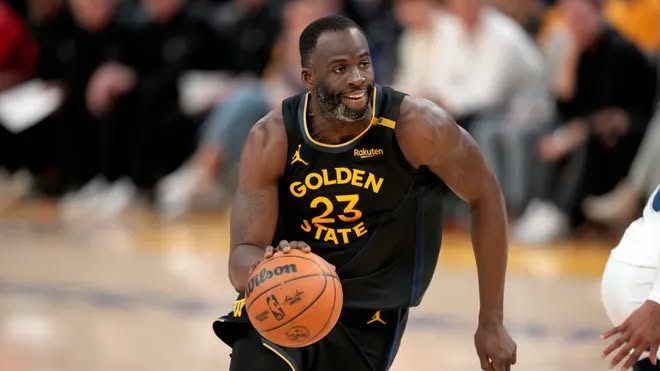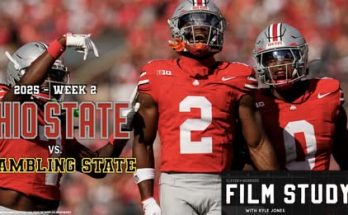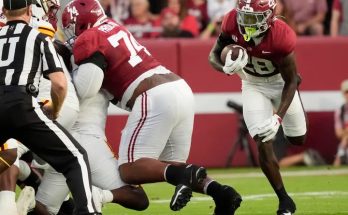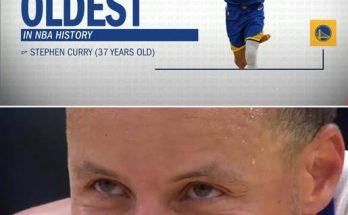Former NBA star makes bold claim about Golden State Warriors’ Draymond Green, and the basketball world has not stopped talking about it since the statement went public. Draymond Green has been one of the most polarizing players in the league for over a decade. His fiery temperament, relentless defense, vocal leadership, and unique ability to impact the game without scoring heavily have made him both a beloved and controversial figure. When a former NBA player speaks about Green, it often sparks debate because his legacy is one of the most difficult to define among modern NBA stars. He has been called everything from the “heart and soul” of the Golden State Warriors dynasty to an “overrated role player” who is fortunate to have played alongside all-time greats like Stephen Curry and Klay Thompson. This latest claim from a respected former player, however, takes things to an entirely new level, calling into question not just Green’s impact but also his place in basketball history.
The claim came during a recent podcast appearance, where the retired NBA star suggested that Draymond Green’s reputation as a defensive genius and championship cornerstone might be exaggerated. According to the former player, Green would not be considered nearly as great if he were not part of the Warriors dynasty. This bold claim set social media ablaze, with fans, analysts, and current players weighing in on whether Green’s success is more a product of his unique skills or the system and teammates around him. This debate is not new. For years, skeptics have argued that Green is not an elite player in the traditional sense because he does not dominate offensively, rarely scoring more than 10 points per game in recent seasons. Yet his supporters point to his defensive versatility, high basketball IQ, and ability to facilitate Golden State’s offense as proof that his contributions go far beyond the box score.
The former NBA star elaborated by saying that if Draymond Green had been drafted by a mediocre team without star shooters or a revolutionary coach like Steve Kerr, he would likely not have enjoyed the same level of success. He emphasized that Green’s skill set, while valuable, is highly dependent on the Warriors’ system, which thrives on ball movement, spacing, and a defensive scheme that maximizes his strengths as a help defender and communicator. Without Curry’s gravity pulling defenders far beyond the three-point line or Thompson’s elite two-way play, Green might not have the space to operate effectively as a playmaker. This argument is not without merit, as the Warriors’ offensive style is uniquely suited to Green’s abilities. However, to claim that he would be irrelevant on other teams is a statement that many basketball purists disagree with.
One of the reasons this claim has generated so much attention is because of who made it. The former NBA star has credibility as someone who has faced similar challenges and understands the nuances of being an elite player in a team-oriented environment. When such a player speaks, fans and analysts listen, not because their opinion is infallible but because it comes from firsthand experience. Draymond Green, known for never shying away from confrontation, has yet to respond publicly, but many are anticipating a fiery reaction. Green has a long history of clapping back at critics, whether through his own podcast, interviews, or on the court with his play. It would not be surprising if he addressed the comments directly in the coming days, especially given how personal and pointed the critique was.
To understand the gravity of this claim, one must consider Green’s journey to the NBA. Drafted 35th overall in the 2012 NBA Draft, he was never expected to become a cornerstone of a championship team. Green was considered undersized for a power forward and lacked the elite athleticism or scoring ability that scouts typically look for in top prospects. Yet he carved out a role for himself through sheer determination, intelligence, and adaptability. By the time the Warriors won their first title in 2015, Green had already established himself as a defensive force capable of guarding all five positions, initiating fast breaks, and anchoring the team’s small-ball “Death Lineup” that revolutionized the league. His unique ability to switch on defense, protect the rim despite his size, and orchestrate the offense from the forward position made him indispensable to Golden State’s success.
Supporters of Draymond Green argue that his greatness lies in doing the little things that do not always show up on a stat sheet. He is the ultimate glue guy, the connective tissue that holds the Warriors’ offense and defense together. Without him, many believe the Warriors’ dynasty would not have been possible, regardless of how good Curry and Thompson are. His defensive accolades—four All-Defensive First Team selections, a Defensive Player of the Year award, and countless clutch stops in big games—speak to his impact. Furthermore, his playmaking ability as a forward is rare, with Green often acting as a secondary or even primary ball handler in crucial moments. His partnership with Curry, particularly in running the pick-and-roll and executing dribble handoffs, has become one of the league’s most lethal weapons.
The former NBA star’s comments, however, force us to re-examine whether Green’s role is truly as transcendent as his fans claim or if it is simply the perfect storm of fit and opportunity. After all, the NBA is filled with talented players who never achieve the same level of recognition because they are not in the right system or surrounded by the right teammates. Could Green have thrived on a team like the Sacramento Kings or Detroit Pistons during the same period? Would his defensive brilliance be enough to offset his lack of scoring without elite shooters stretching the floor? These are fair questions, and they highlight the delicate balance between individual talent and team context in evaluating a player’s legacy.
Another layer to this debate is Green’s often controversial behavior on and off the court. His fiery personality, trash talking, and occasional on-court altercations have made him one of the league’s most polarizing figures. Some see this as passion and leadership, while others view it as a liability. Critics point to incidents like his suspension during the 2016 NBA Finals, which some argue cost the Warriors a championship, as examples of his temperament hurting the team. Supporters counter that his edge and willingness to speak his mind are what make him such an effective leader, pushing his teammates to be better while intimidating opponents.
The timing of the former NBA star’s comments is also interesting, as it comes during a period of transition for the Warriors. While Golden State is still a contender, their core players are aging, and questions about the future of the dynasty loom large. Green recently signed a contract extension to remain with the team, signaling that the front office still values his contributions despite his advancing age and declining offensive production. But with younger stars like Jonathan Kuminga and Moses Moody waiting in the wings, there is an ongoing debate about how much longer the Warriors can rely on Green’s unique skill set to keep them competitive in a Western Conference loaded with talent.
In many ways, this debate about Draymond Green mirrors larger conversations about how we evaluate greatness in the NBA. Traditionally, stars have been judged by scoring, individual accolades, and the ability to carry a team as a primary option. Green challenges that notion by being a player who excels precisely because he does not need to score 20 points per game to dominate. His impact is felt through his defense, passing, screening, and intangible leadership qualities. Players like Dennis Rodman, Ben Wallace, and other defensive specialists of the past were similarly polarizing, as their value was often overlooked due to a lack of offensive fireworks. Green’s supporters argue that he belongs in that lineage of game-changing defenders who may not fill up the stat sheet but leave an indelible mark on the game.
Yet, the former NBA star’s critique suggests that we may be overvaluing Green’s role because of the team he plays for. The Warriors’ system, built around the shooting of Curry and Thompson, the spacing provided by their offensive schemes, and the coaching brilliance of Steve Kerr, creates a perfect environment for a player like Green to thrive. In a different context, his flaws—lack of scoring, inconsistency in shooting, and occasional lapses in composure—might be magnified. This perspective challenges us to consider how much credit should go to the individual versus the system.
Fans have reacted passionately to the comments, with some agreeing that Green is a system player while others fiercely defending his legacy. Social media debates have erupted, with clips of Green’s defensive highlights, clutch plays, and leadership moments being shared as evidence of his greatness. Others have pointed to his statistical declines in recent seasons as proof that he is no longer as impactful as he once was. The truth likely lies somewhere in between. Green is both a product of the Warriors’ system and a key architect of it. Without his unique skill set, the Warriors’ small-ball revolution might not have been possible, but without the shooting and offensive brilliance of Curry and Thompson, Green’s talents might not have been fully utilized.
The former NBA star’s comments also raise questions about how we define success in the modern NBA. Is a player’s greatness determined by individual stats, or by how much they contribute to winning championships? Green has four NBA titles, multiple All-Star appearances, and a Defensive Player of the Year award, yet he will never be remembered as a prolific scorer or offensive juggernaut. Does that diminish his legacy, or does it make him an even more unique and valuable player? These questions have no easy answers, but they highlight the complexities of evaluating players in a team sport where context matters as much as individual talent.
Green’s impact on the Warriors goes beyond numbers. He is often credited with being the emotional leader of the team, holding players accountable and setting the tone defensively. His ability to switch on defense, protect the rim, and guard multiple positions has allowed the Warriors to play a brand of basketball that few teams can match. Offensively, his playmaking and screen-setting create open looks for Curry and Thompson, while his willingness to sacrifice scoring for the good of the team embodies the unselfish style that has made Golden State so successful. These qualities are not easily quantifiable, which is why some analysts argue that traditional stats fail to capture Green’s true value.



